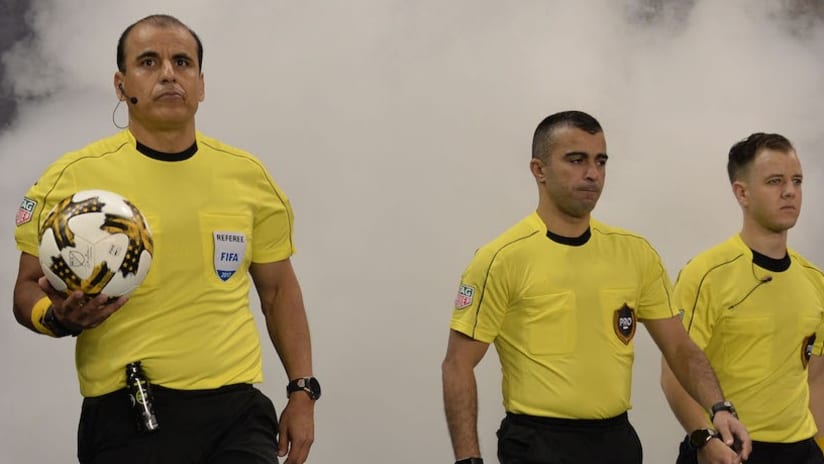From changes to goal kicks, a new handball law and more, Major League Soccer has had the opportunity to observe how the new laws of the game have impacted soccer across the globe for a number of months now.
A set of new laws agreed by the International Football Association Board (IFAB) went into effect in May at the U-20 World Cup, as well as other summer international tournaments, before the European calendar took them up in August and beyond. Ahead of their debut in MLS with the kickoff of the 2020 season next weekend, the league has had ample time to smoothly take on the changes.
"MLS implements new laws of the game at the beginning of the year to provide consistency and, importantly, ensure competitive integrity throughout the course of the season," Jeff Agoos, Senior Vice President of Competition for MLS, told MLSsoccer.com.
There will still be controversy, of course. This is professional sports and refereeing, after all. Across much of the rest of the soccer world over the past few months, video review has been the subject of some heated debate.
Here, MLS would also seem to have an advantage. MLS was one of the first leagues to adopt video replay and it has been met with less resistance here than in Europe, given familiarity with video review across other sports like American football, basketball, hockey and baseball. Since being imported across the pond, it has had times where it's been viewed as more interference than enhancement.
Perhaps most controversial has been the virtual line to rule on offsides, often resulting in decisions so granular that players are found to be half a shoulder offside. MLS tested those virtual lines last year across various stadiums. Ultimately MLS decided it won't be going forward with the mechanism in 2020, although the league will keep an open mind in the future as technology continues to be perfected.
“As with any new initiative, we thoroughly trial and test all new technologies prior to implementation," explained Agoos.
Another issue of contention elsewhere has been the new handball law, particularly as it's applied differently in different scenarios. For instance, when the ball makes contact with an attacking player's hand or arm in any capacity — irrespective of position or intent — and it leads directly to a goal it's called back. But that's not the same for a defensive player, where the old interpretation remains.
“One of the most important messages to get across to fans is that the Laws of the Game now differentiate different types of handball offenses," Howard Webb, general manager of the Professional Referee Organization, said.
"Attackers – who make contact with the ball and immediately score goal or create immediate goal-scoring opportunities – are penalized. Everywhere else on the field, the referee has to make a determination as to whether the player is guilty of an action which will be penalized, such as deliberately moving his hand to the ball or making himself unnaturally bigger to create a barrier for the ball. Contact between the ball and a defender’s arm in itself is not going to be automatically penalized in the way an attacker scores with the same type of contact.”
There will be other changes in 2020, too, most notably by requiring substitutes to exit the field at the nearest touchline and pushing goal kicks to be taken quicker by allowing the goalkeeper's teammates to receive the ball in the box. (Mark Geiger explained to MLSsoccer.com the biggest changes back in May.)
And there is even some good news for MLS refs. The new interference law is working well, meaning that rather getting lambasted by a whole team and much of a stadium when they find themselves as an unwitting participant in the action with an inadvertent touch of the ball, the ref will now blow the play dead and give a drop ball to the team previously in possession.
"There have been times in my career where the ball unintentionally hit me and set up a goal-scoring opportunity for another team to score," Webb said. "As a referee, it’s a terrible feeling. Now, in these instances, a drop is awarded to the team that was in possession.”




